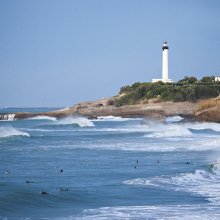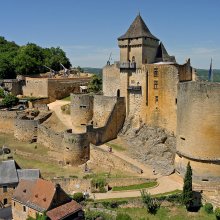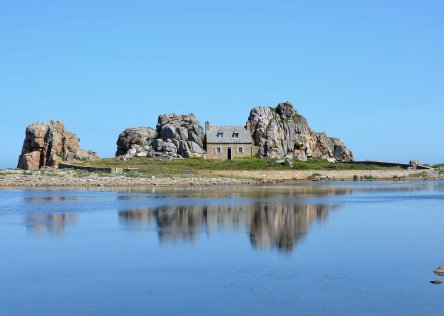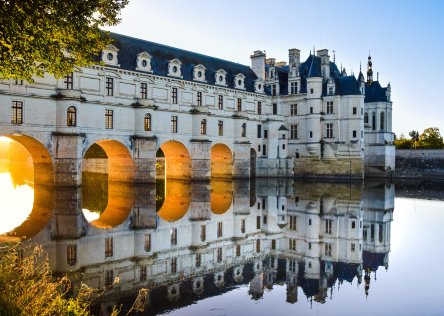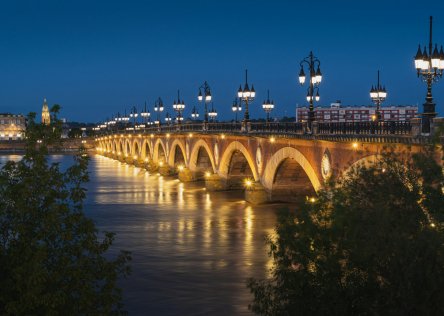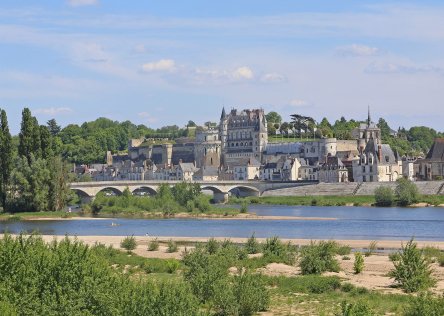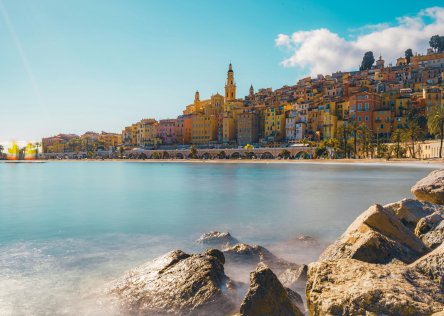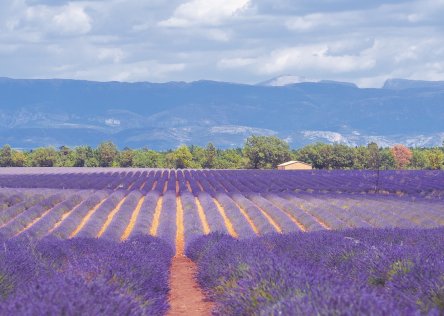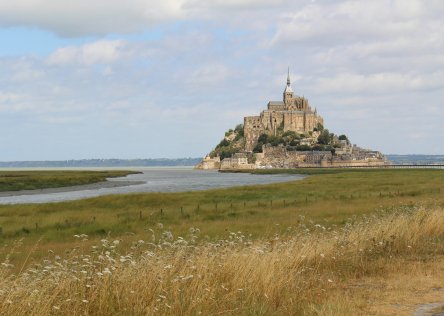The area around the city of Bordeaux is a rich and wonderful spot to visit. And the city itself, France’s 5th largest, is an exciting and dynamic place to spend a few days.
Over about the last 25 years, the city has come a long way with a very successful regeneration program launched by former prime minister and Bordeaux mayor Alain Juppé. In the 90’s, the buildings were black from pollution, the riverbanks were lined with abandoned warehouses, and the city seemed closed into itself.
Things quickly changed, and in 2007, Bordeaux was listed as an UNESCO World Heritage site, making it the largest urban world heritage site in the world. Today, Bordeaux is lively and vibrant, with each neighborhood offering interesting architecture, history and ambiance with great things to eat and drink along the way.
If you book one of our Bordeaux region tours, we will be happy to arrange a private walking tour of the city with expert Bordeaux tour guide, Marylène.
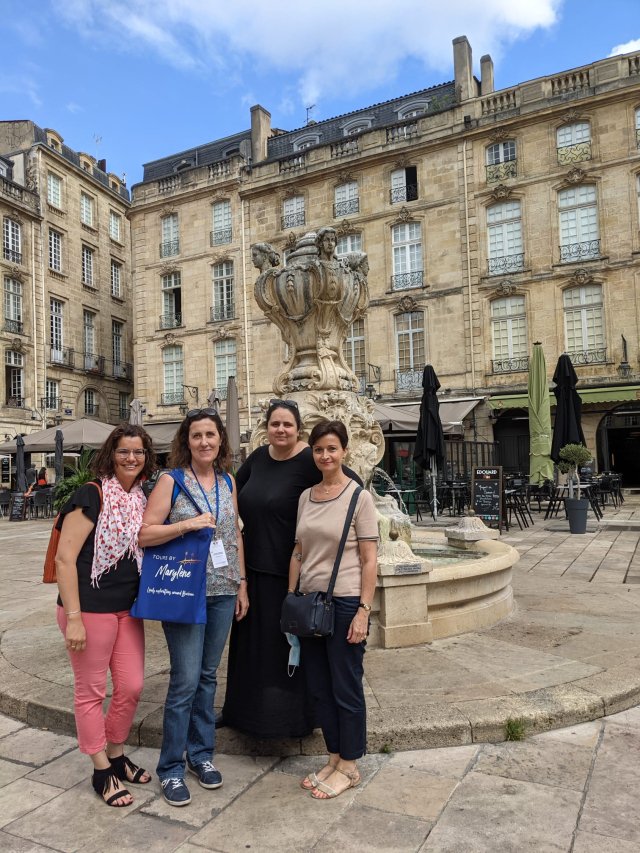
©
Marylène / France Just For You
The City Center
The center is best discovered on foot with a walk that will take you to the main UNESCO sites of the city.
Start at the Tourist Office on the Esplanade des Quinconces where you can pick up a map for a self guided walking tour of Bordeaux (or download ahead of time), and begin the approximately 3 mile walk that will take you to such sites as the Girondins monument, the Maison Gobineau (which also houses the Maison des Vins de Bordeaux where you can stop and have a tasting), the Grand Théâtre, the Hôtel Acquart, the Portes Dijeaux and Cailhau, the Saint André cathedral, the Grosse Cloche, the Place de la Bourse and the Miroir d’Eau, just to name a few.

La Grosse Cloche - ©Pixabay
Shoppers will find their paradise on the pedestrian Rue Saint Catherine, the longest shopping avenue in Europe. It runs from the Place de la Comédie (this area is also called the Triangle d’Or) where more top-end boutiques are located, to the Place de la Victoire, near the Capucins market. Pop into la Toque Cuivrée or Baillardran to taste a canelé, one of Bordeaux’s specialties. It is a little ribbed pastry flavored with rum and vanilla, and is soft and custardy on the inside with a caramelized crust.

Bordeaux's famous Canelés - ©Pixabay
Saint Michel
Less touristy, this popular and mixed neighborhood is centered around the gothic Saint Michel Basilica with its impressive spire, the second highest in France. During medieval times, this area was where the various craftsman worked. Much of the medieval architecture has been destroyed, but you can still see a remaining half-timbered house from the 12th century on rue Pilet.

Around the Saint Michel Basilica - ©Nicolas Duffaure
Antique shoppers will be happy here: an outdoor brocante takes place on Tuesdays, Thursdays, Fridays and Sundays in area around the church. The Passage Saint Michel, which used to be a sort of warehouse for ripening bananas, is now filled with galleries, antique and secondhand shops. And Les Hangars offers cool vintage things – a little pricey but great finds are possible.
The “belly of Bordeaux” is also located here: the covered Marché des Capucins, the city’s largest market. Grab a basket and pick from fresh oysters, tons of cheese, fresh fruits, charcuterie, spices and herbs... a great place to pick up picnic supplies before heading toward the river to enjoy your treats at the Parc des Sports.
Les Chartrons
The Chartrons area is an area that has become popular over the last couple of years. It was where the wine traders were located in the 17th century, and the architecture is specific to this, with long warehouses for storing barrels and bottles being built up from the river. There are plenty of boutiques, coffee shops, and restaurants in this village within the city.
The heart of this area is the rue Notre Dame with its pretty flower-full balconies and a great little pastry shop called Micheline & Paulette for a treat on the go.
The Musée du Vin et du Négoce is located here. This museum is specifically about Bordeaux wines, and a great opportunity to learn about the wine history of these famous vineyards as well as about the different (and rather complicated) wine appellations. The visit ends with the tasting of two of wines.
Art lovers will enjoy the modern art museum (CAPC) which is located in an old storehouse on the docks. There is also a rooftop café and restaurant in a huge room with stone-vaulted ceilings. You can also see some cool street art at le M.U.R., where local artists are invited to express themselves on a 4002-foot wall. Works change regularly, and you can see the artists realizes their works in person (information via their Facebook page).
If you are in the Chartrons on a Sunday, a very nice market is held along the Quai des Chartrons – a great place to discover all the region’s best food products at once, including a plate of oysters with a glass of white wine.
Bacalan
This neighborhood is a little ways from the city center but is the home of the famous Cité du Vin. Because of this, the area has been changing face and now is a fun place to discover.
The Cité du Vin is a must for wine aficionados and covers wine from all over the globe. The unique architecture of the building, the interactive exhibitions, the exceptional tasting room in the Belvedere, and the best panoramic view of Bordeaux make for a great stop. Across the street, the Halles de Bacalan food market is an easy place to buy picnic supplies and enjoy them right there.

The Musée du Vin - ©Pixabay
Wine not your thing? What about whiskey? Moon Harbour Whiskey is 100% Bordelaise, from the barley grown in Saint Jean d’Illac to the barrels used for aging that come from some of the most famous wine chateaux in the region. The barrel room is located inside a bunker built by the Germans during the Second World War as part of the constructions of the Submarine Base. The English tour, which you must reserve in advance, is followed by explanations on malting and the production of whiskey as well as tastings of the three products of the distillery.
You can also immerse yourself in the largest digital art center in the world at les Bassins de Lumières. This is the third installation in France of this type – it has two sister sites in Paris (the Atelier des Lumieres) and in Les Baux-de-Provence (Les Carrieres de Lumieres). Each year focuses on the work of specific artists, normally a very famous one like Klimt or van Gogh, and some contemporary artists.
Before leaving, make sure you see the UFO sculpture in the river. This work created quite a bit of buzz when it appeared in 2018. It is not easy to find, but gives you the occasion for a stroll on the docks of the Bassin à flots to find it.
Bastide – Right Bank
The Bastide neighborhood is located across the river from the city center, on the right bank of the Garonne. This area has been renovated over the last several years, and is now a trendy Boho district.

Pont de Pierre - ©Pixabay
Take the Pont de Pierre from the city center, then head northwest along the river. The Bordeaux Botanical Garden offers a nature break from city life. The gardens are meant to show the biodiversity of the Aquitaine region around Bordeaux and have an educational goal about the difficulties facing the environment. Thus, some may think it is not one of the most beautiful gardens, but you can learn a lot.
For more urban culture, head over to Darwin, which is an “alternative society” project in old warehouses. You will enjoy there some street art, there is a food shop, a skate park, and secondhand store, and an organic farm that provides fruits and vegetables to the flexitarian restaurant. This is a very popular spot with the locals, and for families of the weekend.
- Laura Crotet, France Just For You
If you would like to include Bordeaux in your French trip itinerary, please contact us to help you plan.
FAQ
When is the best time to visit Bordeaux?
The best time to visit Bordeaux is in May, June, September, and October. These months offer pleasant weather for exploring the city and nearby countryside and coastal areas, and great opportunities for wine tasting tours.
How many days in Bordeaux is enough?
We recommend spending at least 3-5 nights if you’re planning a Bordeaux road trip. This will give you time to enjoy the best of Bordeaux city, visit some of Bordeaux's wine regions, such as Médoc and Saint Emilion, and enjoy wine-tastings at a few different wine estates.
Longer Bordeaux region tours will give you the time to visit some of the region’s villages and the beautiful coastal areas.


